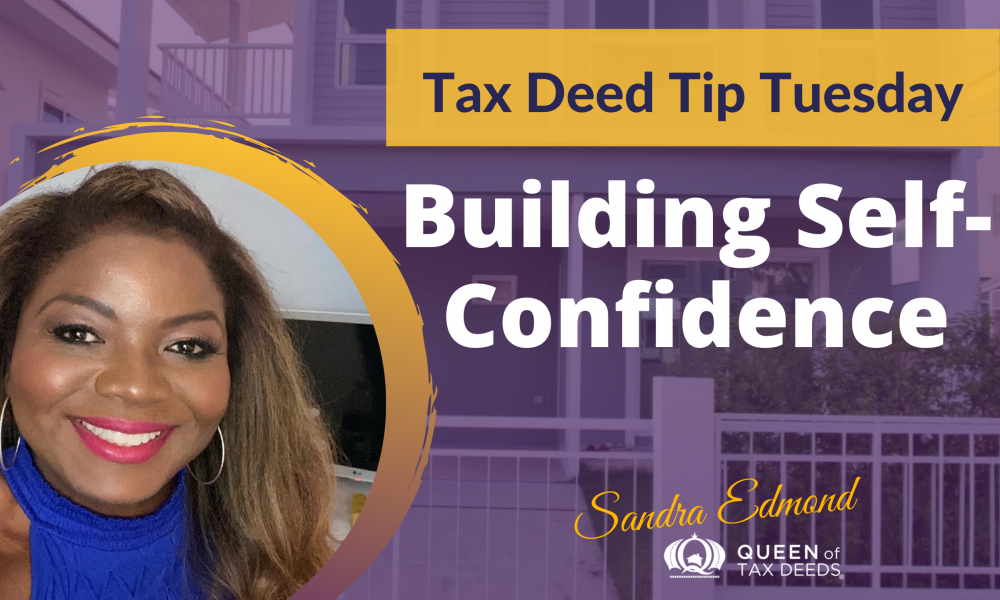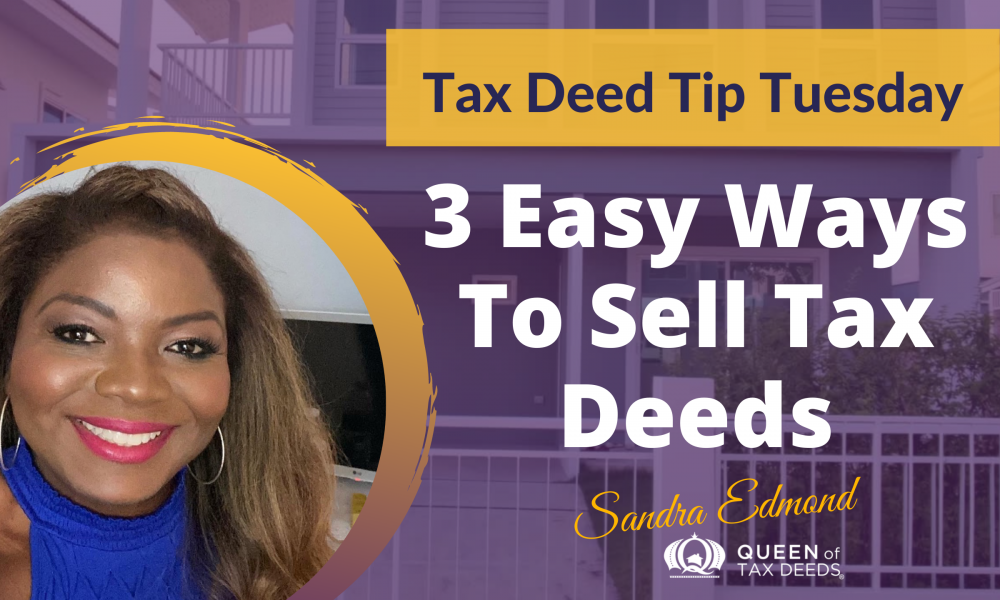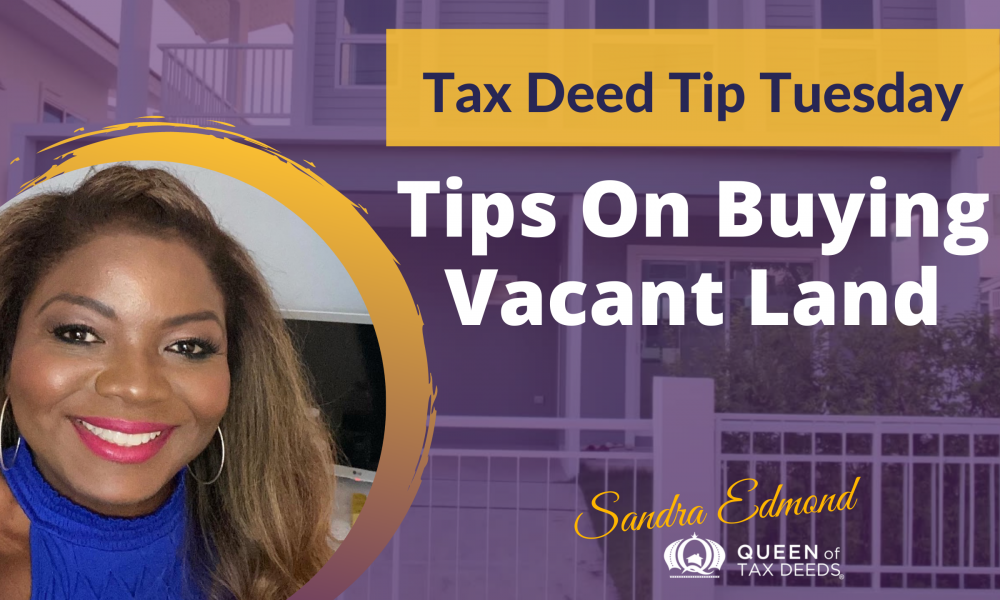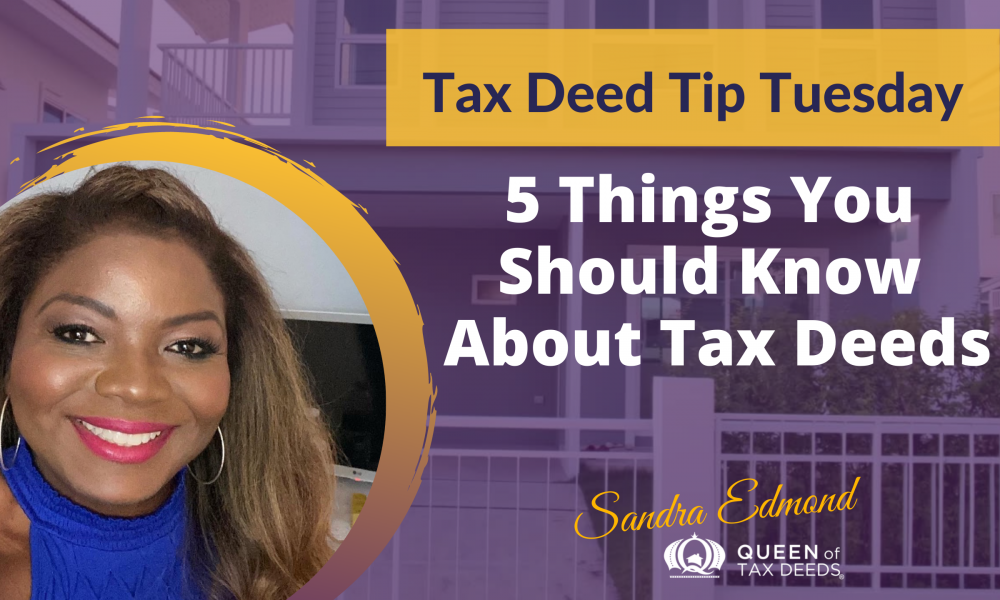- Getting Started
If you are new to real estate investing or tax deeds and liens, this is the page for you! It contains information you need to get up to speed quickly and start investing with confidence.
Key Terms & Definitions
Tax Lien Certificate
Represents a lien of unpaid real estate taxes. Interest accrues on the tax lien certificate until the taxes are paid. In almost every state a tax lien is a first position lien (senior lien).
Tax Deed Auction
A public auction where property is sold to the highest bidder in order to recover delinquent property taxes. A tax deed wipes out almost all liens except certain government liens.
Marketable Title
A title that is free and clear of any defects or clouds that a reasonable buyer would find objectionable. It does not assume absolute absence of defect, but that a prudent, educated buyer in the reasonable course of business would accept.
Writ of Assistance
A written order (a writ) issued by a court instructing a law enforcement official, such as a sheriff or a tax collector, to perform a certain task. Most often, a writ of assistance is used to enforce an order for the possession of lands.
Owner & Encumbrance Report
A report that identifies the last recorded owner of the property, the legal description of the property, and any open liens, mortgages, lis pendens, and judgments that have been recorded on the property or against the owner.
Lis Pendens
Latin for “suit pending.” A written notice that a lawsuit has been filed concerning real estate, involving either the title to the property or a claimed ownership interest in it, which makes the property less attractive to a buyer or lender.
Prepare for the Tax Deed Sale
- Attend at least 3 sales before you bid.
- Pick a county or two to buy tax deeds.
- Create a file for each county with copious notes, including names, numbers, rules, etc.
- Get list of upcoming properties going to sale.
- Get answers to all your questions. Contact Sandra to get her list of questions to use.
- Get a map of the county.
- Decide how much money you'd like to invest.
- Research properties on a list using an Excel spreadsheet or property analysis form.
- Pick the properties that meet your criteria, budget, and any extra work you're willing to do.
- What is your exit strategy? Do you plan to fix it up and hold on to it or do you want to resell it?
- Figure out what profit you'd like to make from the deal. Can you make a profit on the deal?
- Drive by the properties that are now on your short list and get pictures of them.
- Save money and do your own title search using the county’s official public records.
- Mark your auction list.
- Every couple of days check your list and verify what properties have been removed from it.
- Review your notes, recheck your numbers, and head for the sale.
- Queen's Newsletter
Get Sandra's County Links Spreadsheet For Free
Subscribe to the Queen of Tax Deeds newsletter and receive the spreadsheet that Sandra has created for free, which includes links to every single county in Florida, plus some additional links as a bonus.
*Any information collected from our users will not be sold or shared to others.

Driving For Dollars
Watch Video
- Property Hunting
Must Haves When You're Looking For Properties
Having the proper tools and items are important when you are researching and viewing properties. Sandra has provided some of those resources here for starting your journey to be a successful real estate investor.
- Knowledge Base
Knowledge Is Power As Long As It's Applied
As real estate investors, we need to have empathy. Growing your real estate empire while building a relationship with other people will be a win-win for everybody. Everyone wants to feel they are valued. As Lee Bolman said, “If you show people you don’t care, they’ll return the favor. Show them you care, they’ll reciprocate.”.
Many of the properties that we buy we sell right away. We do very little work. Most of our deals we get someone to clean out the house, sometimes we paint, do a little landscaping, and that’s it. Our buyers are generally other investors like rehabbers or landlords. They will finish the work out. This gives us the flexibility to get our money out of the deal quickly and onto the next deal. If you price the house right, you won’t have a problem finding buyers. There is a popular saying in real estate, “You make money when you buy, not when when you sell.” This is why it’s very important you learn how to run comparable sales (comps) so you can come up with accurate property values. Miss this step and there may be no way for you make money on the deal. Miss a lien on a property and there may be no way to make money on that deal either.
You should have a SMILE on your face. Always go door knocking with the right frame of mind. What exactly is that frame of mind you might be asking? Well, it’s definitely not dread. You should always be positive, and most of all, listen. There is a saying that God gave us two ears and one mouth for a reason. Do more listening than talking. I find that always having a natural curiosity and willingness to help people goes a long way. Think of what you can do to help them. This builds rapport and people want to work with people they like.
Set a goal each week on how many doors you want to knock on or how much time you want to spend door knocking. Then just get out there and do it. You will not become an expert in one day. The more you do it the more you learn and the better the potential for you to find that Deal of the Month!
There are not many ways in real estate where you can actually make money with absolutely no money invested. Door knocking requires no upfront cash and no marketing budget, just a clean pair of sneakers and the right attitude.
A pleasant demeanor goes a long with the ability to communicate with a home owner as well as a tenant, vagrant, and/or neighbors. I find this and self-confidence to be one of the best tools to getting the information you need for the outcome you desire. If you don’t believe in yourself, why should anyone else. People can sense your lack of self-confidence about as well as a dog can sense fear. On that note if you find yourself in fear, its ok, just DON’T SHOW IT.
"Proper due diligence techniques are crucial in real estate investing. This process makes or breaks your deal."
- FAQs
Questions For The Queen
You’ve probably got a lot of questions. That’s why you’re here, right? Well, here are some of the most common ones Sandra has answered for you.
A tax deed sale is a public auction where property is sold to the highest bidder in order to recover delinquent property taxes.
A deputy clerk employed by the Clerk of the Circuit Court conducts the sale or public auction in accordance with Florida Statute 197.103 (if in the State of Florida, of course).
Tax deed sales are held as advertised at the County Courthouse or online.
An ownership and encumbrance report is provided in the file maintained on each property to be sold at a tax deed sale. The files are available for the public to review in the Recording Department of the Clerk of Circuit Court.
Private liens & judgments do not survive the tax sale. Governmental liens & judgments survive the issuance of a tax deed and are satisfied to the fullest extent possible with any overbid monies from the sale. Governmental liens not satisfied in full survive the issuance of a tax deed. However certain State liens can be extinguished in a tax deed sale.
The property owner has up until the day of the sale to “redeem” the property, which is to pay to the Tax Collector all current and delinquent taxes and other costs associated with the tax deed sale. Payment must be made in full and payable to the County Tax Collector by cash or certified funds. The property owner may redeem the property up until the time the successful bidder renders payment and a tax deed is issued.
You may wish to research or seek legal advice on any property you are considering bidding for before the tax deed sale. Generally, when any lands are sold for the nonpayment of taxes, the title may not be a marketable title. If you are the successful bidder, you may need to file a quiet title suit to clear the title to the property. Quiet title suits are civil law suits and are not handled by the tax deed clerk. Information on this procedure and costs would be available from an attorney that handles these suits.
According to Florida Statute 197.562, the grantee of any tax deed shall be entitled to the immediate possession of the lands described in the deed.
If a demand for possession is refused, the tax deed owner may apply to the circuit court for a writ of assistance upon 5 days’ notice directed to the person refusing to deliver possession. If the person does not vacate the property the tax deed owner must file with the circuit court, if the filing is in order the court will direct the sheriff to put the tax deed owner in possession of the property.
The opening bid of each property to be sold is determined by adding together the sum of all the outstanding tax certificates, delinquent taxes paid, fees, costs of the sale and interest, all as specified in the Florida Statutes. The opening bid is usually determined approximately ten days to two weeks prior to the sale date. It is available in the file maintained in the recording department of the Clerk of Circuit Court.
You may need to “pre-register” or check in with the deputy clerk before the sale. After the sale, if you are the successful bidder, you will receive instructions from the deputy clerk.
You may need to send a bank wire or appear in person at the Tax Deed office with the balance of your final bid. After the sale to receive information from the deputy clerk detailing the total payment due, which includes the bid amount, recording fees and documentary stamps. You will be asked to provide to the deputy clerk the name(s) in which you wish the tax deed to be issued. Your total payment may be required to be paid the same day or within 24 hours from the sale. Payment is either in the form of cash, cashier’s check or money order payable to the Clerk of Circuit Court. Rarely is a personal check accepted. Remember, the property owner can redeem the property at the Tax Collector up until the time the successful bidder makes full payment and a tax deed is issued. Once the deputy clerk issues the tax deed, the property cannot be redeemed. At the conclusion of the bidding, the high bidder is required by law to pay the Clerk $200.00 cash or 5%, whichever is greater. Each sale has their own rules and regulations.
According to Florida Statutes 197.542(1), the Clerk may refuse to recognize the bid of any person who has previously bid and refused, for any reason, to honor such bid. In other words, you would not be allowed to bid at any future tax deed sales in this county. The property would be re-advertised and offered for sale again at a later date.
The Property Appraiser’s Office can provide you with information on any structural improvements on the property. Additional information is provided in the tax deed file which is located in the Recording department of the Clerk of Circuit Court. The laws governing tax deed sales can be found in Chapter 197 of the Florida Statutes. The rules of the Florida Department of Revenue regarding tax deed sales can be found in their administrative code beginning at 12D-13.060.
From time to time, I do choose a select number of students who will get further training on how to buy Tax Deeds and make a Profit from Tax Deed Sales by attending a 2 Day Field Trip or getting the Home Study course. We also offer a Master Mind Program for those who want coaching.



